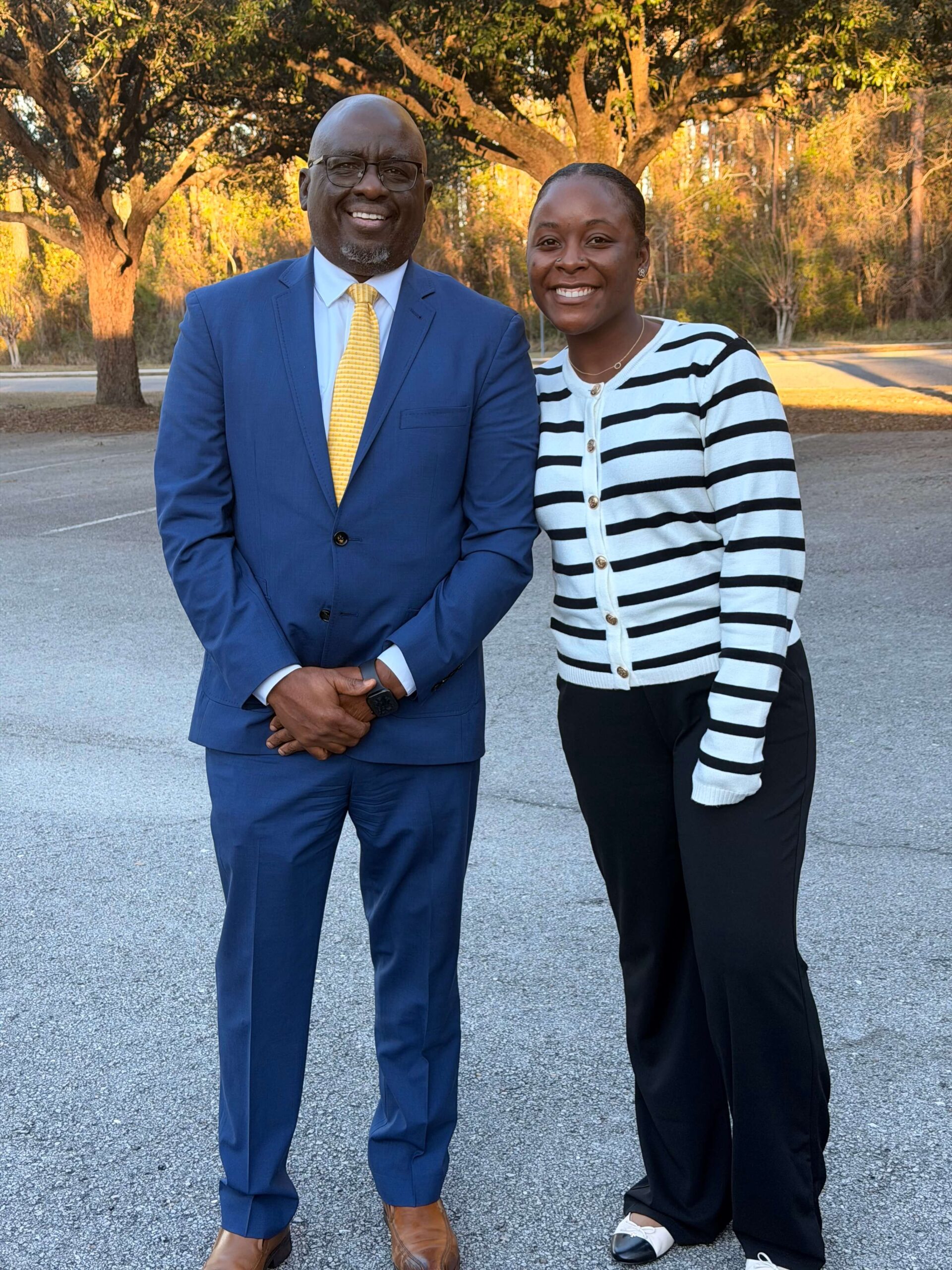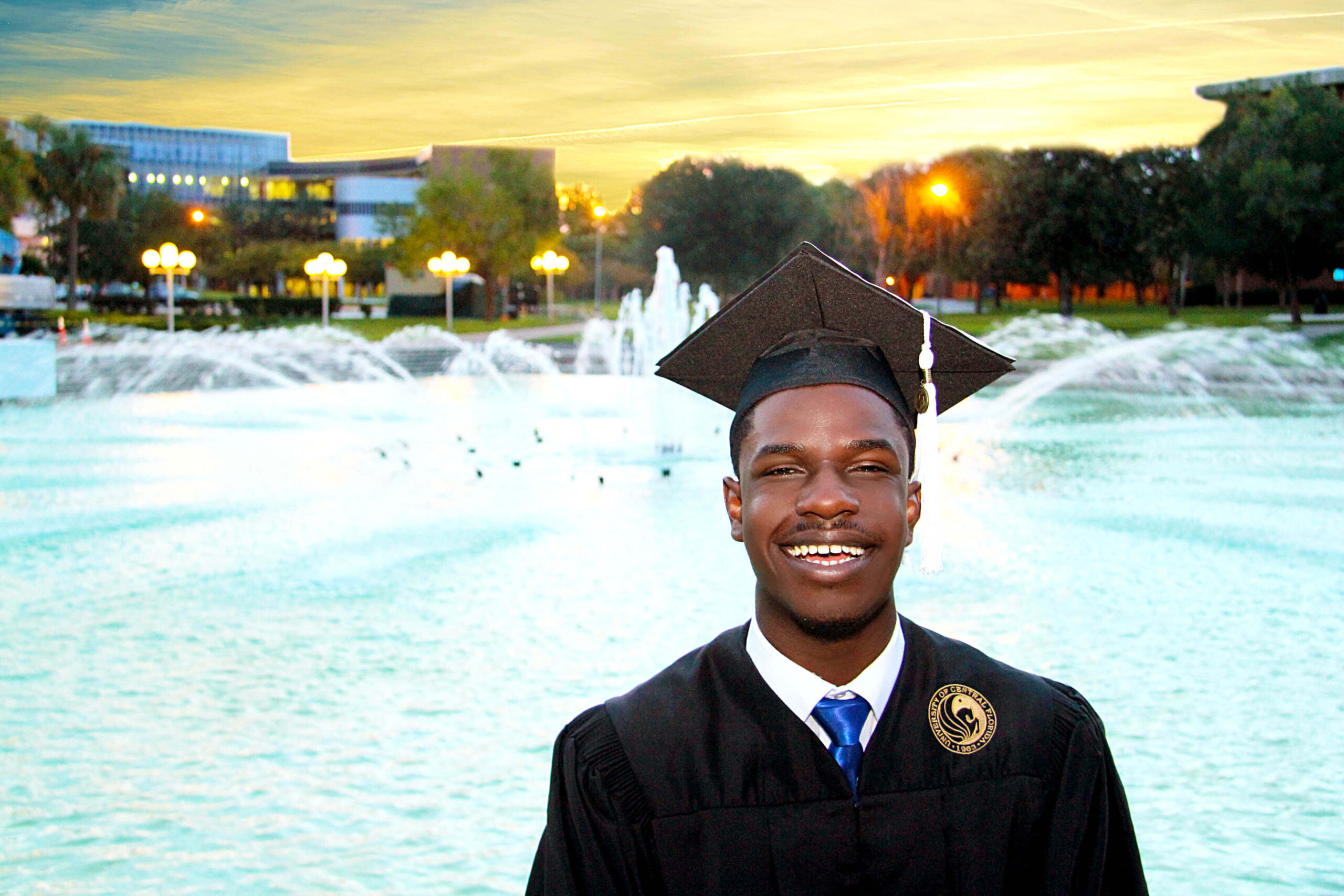The History of Army Combat Veteran Walt Napier ’15 ’16 ’20MA
Walt Napier explores Roman ruins. Napier has studied history much of his life, and had the opportunity to study various archaeological sites during his time at UCF.
Walt Napier’s grandfather, one of nine children, was born in Harlan County, Kentucky, and seemed destined for the harsh life that others in the coal-mining town had endured since the early twentieth century.
“There seemed to be no escape for him,” Walt Napier ’15 ’16 ’20MA says. “Had he stayed in Harlan County, his future would have been the mines, and all the dangers involved. His family knew they had to get out.”
One night, Walter Wayne Napier Sr. hopped into the back of a car with the rest of his family, bound for Wauchula where he could pick fruits and vegetables in the Florida sunshine and earn real money, not company scrip.
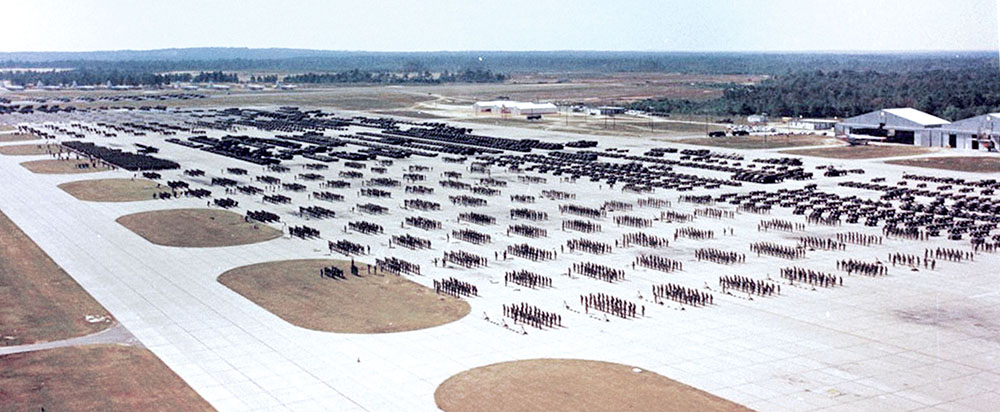
The elder Napier went on to serve as a member of the U.S. Army’s 82nd Airborne Division, where he witnessed President John F. Kennedy’s speech at Fort Bragg establishing the Green Berets and was put on alert during the Cuban Missile Crisis. His brother, Robert, also joined the Army and took part in a number of campaigns during Vietnam including the Tet Offensive and Hamburger Hill.
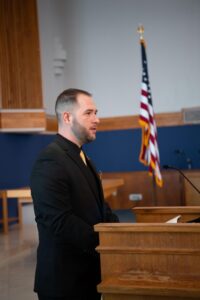
During the period when the two elder Napiers served, the prevailing sentiment across the country was largely negative toward service members. Napier and his fellow brother-and-sister veterans were not considered heroes by an American public angry over Vietnam. Still, Napier was grateful.
“My grandfather once told me that he had never before had shoes without holes in them, so the Army had been good to him,” says his grandson and namesake.
The elder Napier went on to live a full life after his time in the Army, residing in Wauchula. He was a pastor, pilot, police officer, grove owner, and locksmith, according to his 2015 obituary.
Walt Napier says that between his grandfather’s, uncle’s and father’s military service – his father was a military policeman – he appeared to have been destined for a career in the military as well.
His father, however, gently cautioned against it, at least until he completed college. Like most parents, Napier’s father wanted an easier life for his only son.
“I had considered military service before 9/11, but after the towers fell it become a certainty,” Walt Napier says. He turned 14 the day before the terrorist attacks briefly brought America to its knees.
Napier was, literally, fighting mad. He did not yet understand the historical background of 9/11, but he knew he had to help defend his country. He also knew he was legally required to wait four more years until he turned 18 to participate.
“I felt like I was going to miss the war,” Napier says. “I over-estimated that a little bit.”
Over the next four years or so, Napier and his father each continued on their own campaigns of trying to convince the other to change their minds.
His father urged his son to consider joining the service after he received his degree. A nice office job. Higher pay.
Napier was resolute.
“I’m not going to be the guy in the office,” Napier recalls. “I want to be a part of this.”
Once his father saw that his son was determined, he also supported him in the best way he knew by preparing him for the Army life. In addition to teaching him how to be as safe as he could be, Napier’s father also exhorted him to set one of his goals to receiving an honorable discharge at the end of his service.
Napier knew he would have to be in optimum physical health to complete his mission. Some of the veterans in his community had told him tales of the miles of running they’d had to do, with rucksacks full of gear.
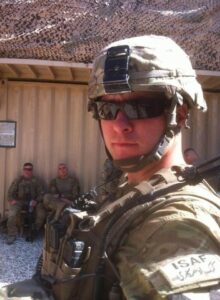
By this time, his father understood that his son would not be deterred from his goal of serving in the infantry. He did, however, offer one last reality check.
“My dad came into my room one night while I was watching TV,” Napier says. “He told me to get dressed and grab a rifle.”
The Napiers went outside, where the elder Napier told his son to lay down on the ground, and to point his rifle at a tree. Some time went by before Napier’s father told his son that most of his experiences in the Army would involve very little action, with many periods of inactivity.
“I mean, he wasn’t wrong,” Napier says. “I found out that for about 90% of the time, that is exactly what the infantry does.”
After doing his research, he discovered that the Army had the most direct route for him to achieve his personal goals. Napier figured, as he had all along, that college would still be there for him when he got back. He kept telling anyone who would listen that he wanted to fight.
In 2008, Napier experienced his first deployment to Iraq. He had been prepared for what to expect via various levels of training, including one immediately before deployment at the Joint Readiness Training Center in Louisiana.
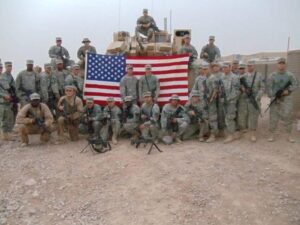
“That was good tactical training,” Napier recalls. “They taught us how to clear buildings, and other policing actions.”
At the time, the focus of the war was beginning to shift from combat operations to policing actions, Napier says.
“It was a different type of training,” Napier says. “We weren’t their friends, but we weren’t their enemies either.”
A scenario could involve Napier and his team going into town for supplies. They would have to clear everyone out of the store while they shopped – and paid for, of course – the supplies that they needed. After they finished, the store reopened for the Iraqi citizens.
“The first six months we did a lot of good work; but then it became difficult dealing with people’s ever-changing expectations,” Napier says. “We didn’t speak their language, the Iraqis were not looking at us as their allies, and each consecutive deployment got worse. But as a soldier, you don’t get to make the rules, you just have to follow them.”
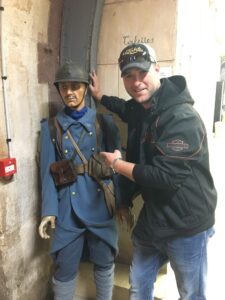
In his downtime – which his father had accurately predicted – two things happened. Napier continued studying history, and he developed the best friendships of his life.
Napier says that when he got out in 2013, he did have some difficulty in adjusting to life as a civilian. He went back to UCF as a history major; the support he received from professors Edward Dandrow, Barbara Gannon and Amelia Lyons was immeasurable.
“They saw something in me,” Napier says. “They told me I had to calm down and focus, and they were right. I did have to calm down. I had left Afghanistan only six months before returning to UCF.”
While at UCF, Napier participated in UCF’s Veterans History Project; the interview can be viewed here. He later became a historian for the Veterans History Project, interviewing others about their service.
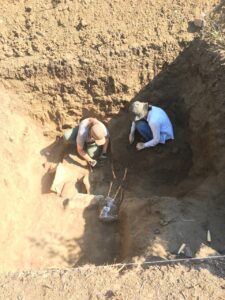
When he went on for his master’s degree, his professors thought he would be interested in an opportunity in Filyos, Turkey. There, Napier helped excavate the ancient settlement of Tios, a site that had previously been Greek, Roman, and Byzantine. He also worked for the Veterans Legacy Program, a UCF History project that traces Florida veterans who are buried in national cemeteries. In 2018, they even took their research to France, where he helped research Florida veterans who had served in World War I and were buried abroad.
After he received his master’s, Napier was thinking about going for his doctorate degree, but he received a job offer from the Air Force to become a historian. As it was shortly after the pandemic hit, his advisor told him to take the job.
Napier is currently a historian at the US Army Command and General Staff College & Combined Arms Center in Fort Leavenworth, KS. He recently returned to UCF for Veterans Month to share his experiences.
Napier observed that over the years, the disparities between civilian and military life have become both more apparent and less known. It is important to him to talk about those disparities in an effort to effect change.
“Our soldiers are enduring an increasing global operations tempo, which simply means they are deploying more,” Napier says, “Yet we have fewer people to sustain those deployments due to the current recruiting crisis.
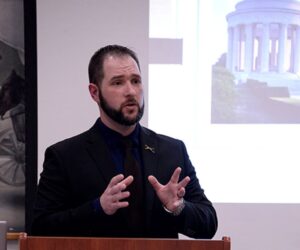
“There are a lot of difficulties that people don’t know about, and this is a widespread public problem in a time of international uncertainty,” Napier says. He pointed out a number of issues including recruiting problems, the need to replace outdated housing, and paychecks that are having difficulties keeping up with inflation.
It is not an unfixable problem, but the reason he is passionate about shedding a light on the issue is because, in general, people don’t know.
“We can bring attention to this crisis, not just during National Veterans and Military Families Month, but throughout the year,” Napier says.
“A military life is tough, but I am proud of my service. It is important that we continue to value those who serve because the best recruiters are veterans. If those veterans come home and tell their friends and family that the military was a negative experience, that creates a ripple effect. I am hopeful that bringing attention to these issues can help right the ship.”
